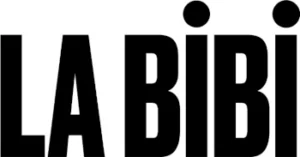The Ghanaian artist uses the money he earns from selling his artworks on an international circuit to benefit his community and to spread information about different environmental and human rights abuses.
:quality(70)/cloudfront-eu-central-1.images.arcpublishing.com/thenational/PYWEFG3NM7BC3JH3FAPH663MTQ.jpg)
Melissa Gronlund – Feb 3, 2018
Serge Attukwei Clottey occupies a twin role of artist and community activist in Accra, Ghana’s capital city. With his signature material of plastic jerry cans, which he cuts up to make bright yellow mosaics, he addresses the blights of colonialism and capitalism.
“I’m interested in migration,” Clottey says, “Not just of people but of objects, and how they migrate from one continent to another. That’s what I’ve been exploring with these jerry cans for quite some time: how are we able to change the value of the can through trading and artistic expression?”
Clottey uses the channels of the art world – and of his role within it – to challenge and shed light on the way that trade and migration unfairly benefit Western countries. In his studio in Ghana, members of his “GoLokal” collective are often found at work on the cans that are typically used to store cooking oil and other foodstuffs. Some cut out the plastic into rough squares; others pierce them with tiny holes in the corners and connect them together with wire. The shade of yellow differs from can to can, based on how the can was used and whether it was left outside, and Clottey paints some of the squares, forming designs in the variegated mosaic that emerges.
Then, they are sold to international collectors, retracing a journey back to the West.
:quality(70)/cloudfront-eu-central-1.images.arcpublishing.com/thenational/QHGTQUSUKROBLDIRYKIGTGABUA.jpg)
How to get in “control,” as Clottey puts it, of this last leg of the trade route of the jerry can is the challenge. Clottey uses the money he earns from selling his artworks on an international circuit to benefit his community and to spread information about different environmental and human rights abuses.
“My collective is on a payroll so it is a way of developing the community by creating accessible jobs,” he explains. Clottey also pays people for the jerry cans that they bring to his studio, turning his studio into an upscale recycling unit, in an attempt to reduce the number of cans that lie discarded on the streets or wind up in the ocean.
Clottey also sources material for his artworks from large-scale clean-ups of cans that have washed up on shore. “We clean the beach, and we create installations from the material to criticise the companies behind the waste, so we document their practices. We then put it on social media and get press from the event.”
Clottey has also addressed heath issues arising from the use of the jerry cans.
“After a couple of days they get contaminated, which is not safe. But now through my approach and presentation of the problem, people are getting rid of them and are bringing them to the studio. Now they are going back to our traditional ways of storing water in the clay pot. They realised it is causing health issues – it was not hygienic.”
Clottey’s company has grown from five members in 2012 to seventy at present. You can see Clottey and the GoLokal team in Clottey’s current show at the gallery Lawrie Shabibi in Alserkal Avenue, where they are performing in Clottey’s first-ever video, the 11-minute The Displaced (2015). The work tells the story of how Clottey’s family in the 1800s moved from their home to another tract of land: migration for the sake of economic survival is no new thing, the video reminds us. Members of GoLokal, with washes of face paint – a traditional Ghanian way of connecting to ancestors, Clottey says – and symbolic costumes, silently reprise the story around internal migration.
Clottey’s project is rich in art historical precedents. His reuse of found consumer items brings to mind, particularly in a UAE context, the work of Hassan Sharif, who likewise manually transformed cheap, disposable goods into new assemblages and sculptures. And Clottey’s recirculation of funds from the art market recalls other artists who are similarly trying to rationalise, on the one hand, the stupendous amounts of money that contemporary artworks sell for, and, on the other, the impoverishment of communities they might come from. Theaster Gates, for example, likewise diverts the proceeds from his ceramic artworks into his community of the South Side of Chicago, by founding cinemas, shops, and studios that serve it.
:quality(70)/cloudfront-eu-central-1.images.arcpublishing.com/thenational/WOSYULQ4BGL5EQAXNIZNYIQRI4.jpg)
Clottey’s show at Lawrie Shabibi is itself a function of another kind of trade: it is being “taken over” by the Accra Gallery 1957, who have brought both artwork and staff during the exhibition’s duration. Lawrie Shabiabi/Gallery 1957 are showing three of Clottey’s jerry can mosaics, and a number of striking, expressive works on paper, in charcoal and pastel, from his “Sex and Politics” series. During Al Quoz Arts Fest, Clottey performed a rendition of Displacement, in which he showed himself entangled with the jerry cans. In other works, he covers his face with the cans, with the handle for a long nose, and the whole for a paping moth. It evokes traditional Ghanian masks that were made of wood: “a mask for our time,” Clottey says.
Source: https://www.thenationalnews.com







